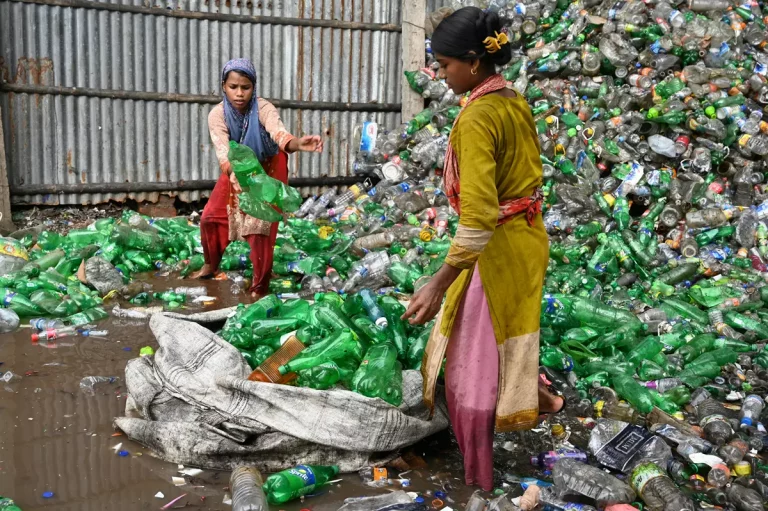
The growing problem of plastic pollution
Plastic pollution has become a global crisis, posing significant threats to our environment, wildlife, and human health.
With the rapid increase in plastic production and consumption over the past few decades, our planet is now inundated with plastic waste that litters our oceans, rivers, and landscapes.
Every year, millions of tons of plastic waste end up in the ocean, harming marine life, disrupting ecosystems, and contaminating our water sources. Plastic pollution has reached such alarming levels that urgent action is needed to mitigate its impact and preserve our planet for future generations.
The role of plastic recycling
One of the most effective ways to address the problem of plastic pollution is through recycling. Recycling involves the collection, processing, and remanufacturing of plastic waste into new products, thereby reducing the need for virgin plastic production and minimizing environmental harm.
By recycling plastic, we can divert significant amounts of waste from landfills and incinerators, conserving valuable resources and reducing greenhouse gas emissions associated with plastic production. Additionally, recycling helps to conserve energy and reduce reliance on fossil fuels, further mitigating climate change.
The environmental benefits of plastic recycling
Plastic recycling offers a multitude of environmental benefits that contribute to a more sustainable future. Firstly, recycling helps to conserve natural resources by reducing the demand for raw materials used in plastic production, such as petroleum and natural gas.
Furthermore, recycling prevents plastic waste from polluting our oceans, rivers, and ecosystems, safeguarding biodiversity and protecting vulnerable marine species from harm. By keeping plastic out of the environment, recycling helps to preserve the beauty and integrity of our natural landscapes.
The economic value of plastic recycling
In addition to its environmental benefits, plastic recycling also holds significant economic value. Recycling creates jobs in the collection, sorting, and processing of recyclable materials, contributing to local economies and fostering innovation in waste management technologies.
Moreover, the recycled plastics industry generates revenue through the sale of recycled materials to manufacturers, providing a lucrative market for recycled plastics and incentivizing further investment in recycling infrastructure and technology.
The importance of consumer education and participation
While plastic recycling plays a crucial role in reducing environmental impact, its effectiveness relies heavily on consumer education and participation. Many people are unaware of the importance of recycling or are unsure about which plastics can be recycled.
Therefore, it is essential to educate the public about the benefits of recycling, as well as provide clear guidelines on how to properly sort and dispose of plastic waste. By empowering consumers with the knowledge and resources to recycle effectively, we can increase recycling rates and minimize plastic pollution.
Plastic recycling is a vital component of efforts to reduce our environmental impact and combat plastic pollution. By recycling plastic waste, we can conserve resources, protect ecosystems, and create a more sustainable future for generations to come – plastic recycler.
However, achieving meaningful progress requires collective action from individuals, businesses, and governments alike. Through collaboration and commitment to recycling, we can pave the way towards a cleaner, healthier planet for all.
